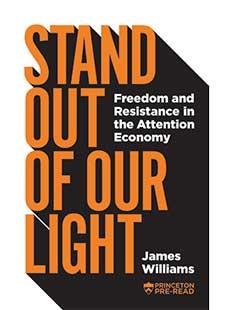Pre-read 2019: What is Digital Communication Doing to Civic Discourse?
Last fall, I visited each of Princeton’s six residential colleges to discuss the 2018 Pre-read, Professor Keith Whittington’s Speak Freely: Why Universities Must Defend Free Speech. Amidst robust conversations filled with thoughtful comments, one student’s query struck me as especially revealing. She said that she had been persuaded by Whittington’s case for the importance of vigorous truthseeking argument at colleges and universities, and so wondered in retrospect why her high school discouraged discussion of controversial topics. At first I thought her school might be unusual, but I quickly noticed other students nodding in accord.
In an era when disagreement rapidly escalates to anger, too many schools and teachers have responded by shielding students from controversy. Whether born of overprotectiveness, fear of lawsuits or something else, such pedagogical risk-aversion leaves students less well prepared for college and for society.

That is one of many reasons why Princeton and other universities must educate incoming students about the truth-seeking character of scholarly communities, and about why free-wheeling debate matters to an intellectually rigorous environment. Sharing this message is vital precisely because many of our students may be encountering these ideas for the first time.
While I worry about the direction that some high schools are pursuing, I continue to be impressed by our students. I find that Princeton students recognize the need to participate in meaningful arguments while also treating each other with respect. They appreciate speech that is both free and civil, and they care deeply about creating a community that values both free speech and inclusivity. Achieving that ideal is not easy. While our students (like the rest of us!) occasionally fall short of it, they do their best to create conditions where tough questions can be discussed openly in an environment of mutual respect.
That commitment is much needed. As many commentators have noted, people who disagree nowadays often treat one another with contempt rather than respect. That attitude is at the root of many efforts to repress speech: if you think somebody’s opinion is contemptible, it is easy to conclude that no purpose is served by listening to them. If we want to understand why free speech has become a flashpoint in our society, we should ask why civic discourse has become so nasty and spiteful.
Next year’s Pre-read argues that digital communications technology is one source of the problem. The book is Stand Out of Our Light: Freedom and Resistance in the Attention Economy by James Williams, who recently completed his doctoral work in philosophy at Oxford after working for more than a decade at Google. He warns that the many distractions of our digital world are inhibiting our ability to attend to the goals that truly matter in life.
Though people frequently talk about the dangers of “fake news” or the risk that people will get information only from sources that echo their own beliefs, Williams makes a more fundamental point. His key insight is that in an information-saturated society, attention itself becomes a precious commodity.
The competition for attention benefits extreme and eye-catching viewpoints. To get noticed, web designers resort to click bait and politicians rely on provocations and emotional appeals. This inflammatory barrage exacerbates social divisions and corrupts the conditions needed for thoughtful deliberation.
A culture of distraction also threatens the educational project of universities. Teaching is all about getting students to focus and concentrate. We want students to lose themselves in novels and immerse themselves in the wonders of science and mathematics. We need our students to engage deeply with their readings, listen respectfully to peers, and formulate their own independent judgments about the scholarship they encounter. Students and even faculty colleagues have mentioned to me that they feel the distractions of digital media are making it harder for them to exert the attention that scholarly projects require.
Williams remains an optimist, as do I. Digital communications technology has clearly improved our world in exhilarating ways. We need, however, to understand its consequences and figure out how to adapt to them. That project is at the core of Stand Out of Our Light. I hope that some of you will join our students in reading the book, which is not only short but also witty— or witty, at least, by the standards of scholarly books! I look forward to discussing it with our students, and with the wider Princeton community, in the year ahead.











No responses yet